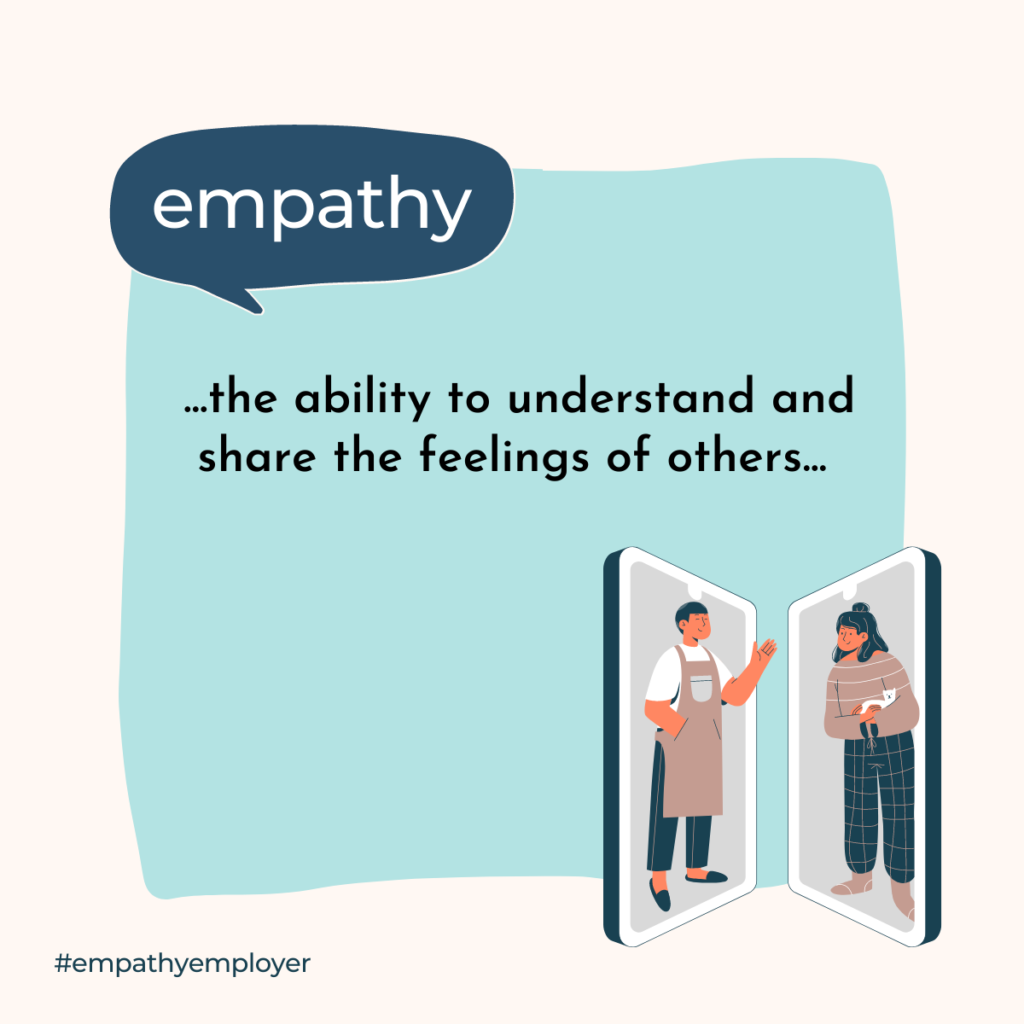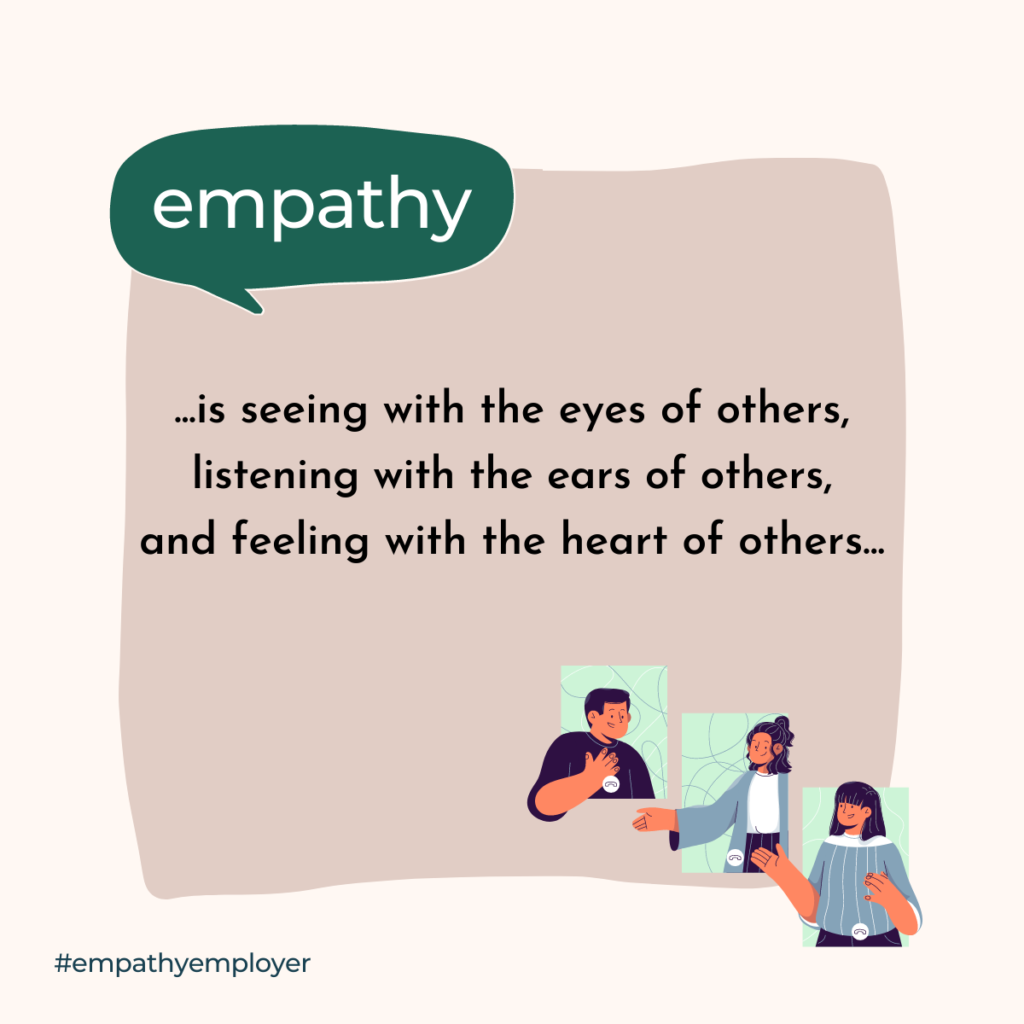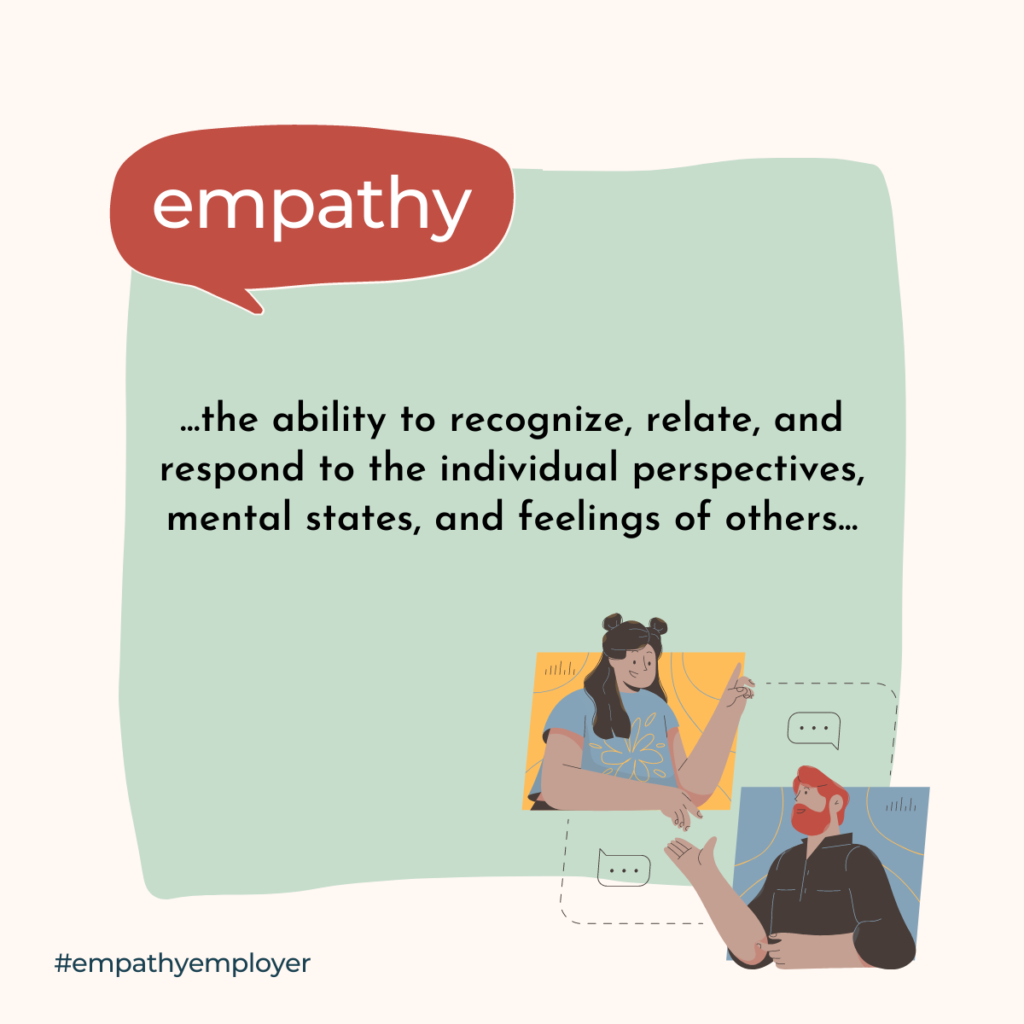What is empathy
Empathy is the ability to recognize, relate, and respond to individual perspectives, mental states, and feelings of others.
Empathy is a cornerstone of strong working relationships. It allows us to connect with colleagues, build trust, and foster a positive work environment. But what exactly is empathy? Here’s a breakdown:
Empathy: The ability to recognize, relate, and respond to the individual perspectives, mental states, and feelings of others. Our definition highlights the three key practical stages of empathy:
- Recognition: We can identify the emotions, thoughts, and experiences of others. This might involve observing their body language, listening to their tone of voice, or understanding the context of a situation.
- Relating: We can connect with those emotions and understand how they might feel in that situation. Here, we put ourselves in their shoes mentally and imagine their perspective.
- Responding: Based on our understanding, we can adjust our behavior or communication accordingly. This could involve offering support, expressing concern, or simply being a good listener.

What are the Different Types of Empathy
Let’s delve deeper into the three main types of empathy that play a critical role in the workplace:
Cognitive Empathy (Perspective Taking)
This is the ability to understand another person’s thoughts and feelings without necessarily experiencing them yourself. Imagine it like mentally stepping into their shoes. In the workplace, cognitive empathy might look like:
- Understanding a client’s frustration with a complex product
- Figuring out why a colleague seems disengaged during a meeting
- Seeing a situation from a manager’s perspective
Emotional Empathy (Sharing Emotions)
This is the ability to resonate with the emotions of others. It’s about acknowledging and understanding their feelings, but not becoming overwhelmed by them yourself. Imagine feeling a twinge of disappointment alongside a colleague who lost a sale, but without getting discouraged yourself. In the workplace, emotional empathy involve:
- Feeling a sense of urgency when a teammate is facing a tight deadline
- Sharing in the excitement of a colleague who gets a promotion
- Recognizing a customer’s anger or frustration
Compassionate Empathy (Taking Action)
This is the combination of cognitive and emotional empathy, but with the added element of taking action to help. It’s about being motivated to support someone based on your understanding and shared emotions. This doesn’t mean fixing their problems, but offering resources, taking appropriate action, or simply being a listening ear. In the workplace, compassionate empathy could involve:
- Offering to help a colleague brainstorm solutions after a setback
- Advocating for a client who feels unheard
- Providing emotional support to a teammate going through a difficult time
Empathy is both a trait and skill that can be learned and improved with practice. By developing and practicing all three types of empathy, you can become a more effective communicator, collaborator, and leader. You’ll build stronger relationships, create a more positive work environment, and foster a sense of connection within your team.




Employees feel valued and heard
Open communication and mutual respect creates a supportive environment
Diverse ideas spark innovation
Teams explore a wider range of solutions, leading to creative and groundbreaking ideas
Attract and retain top talent
Strong company culture built on empathy attracts the best and brightest who stay with the organization
Empathy in the workplace
A supportive, trusting, and inclusive environment where employees feel valued and understood enhances the employee experience. This sense of connection allows them to freely share ideas, collaborate effectively, explore a wider range of solutions, leading to more creative problem-solving and groundbreaking innovations. Organizational cultures that embrace these empathic values attract and retain top talent.
Share on social media




